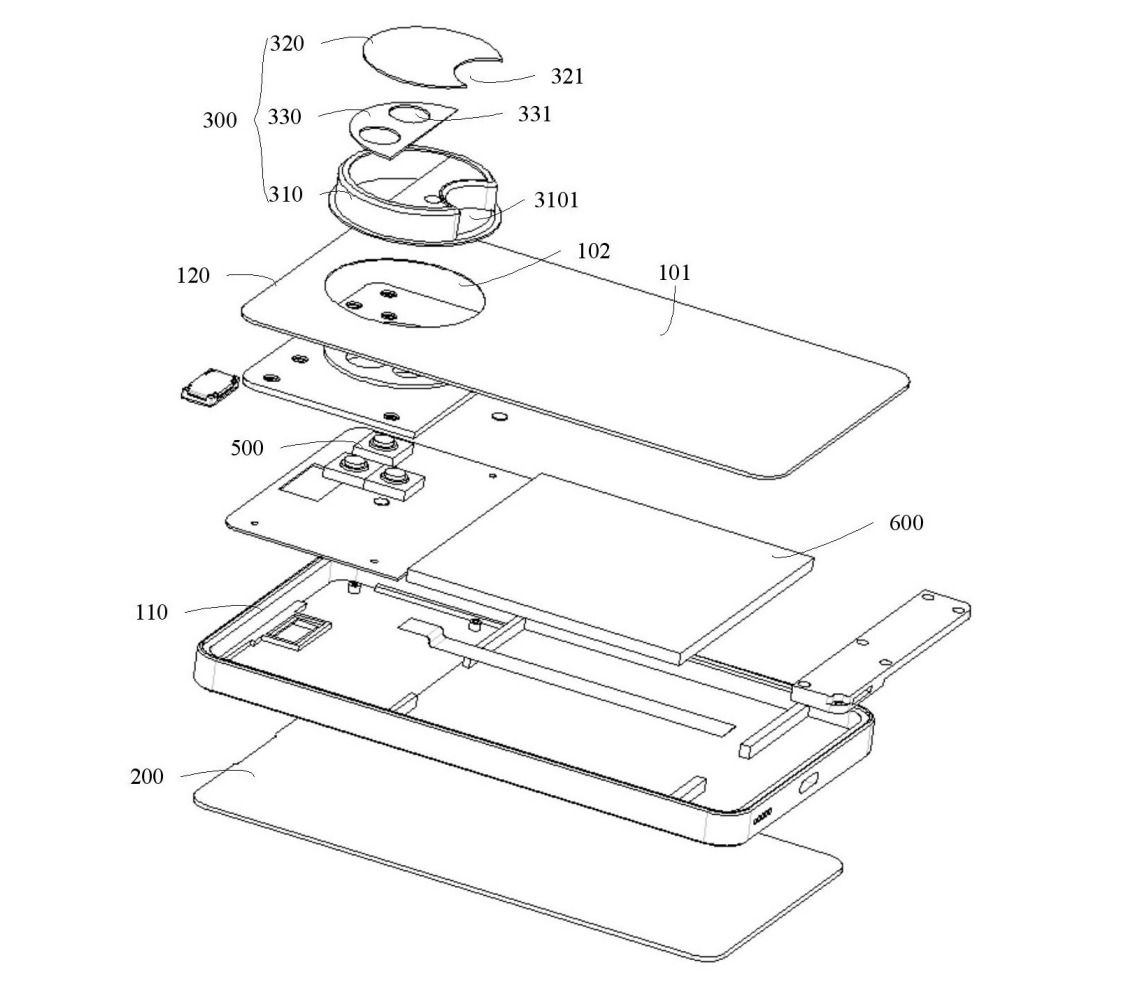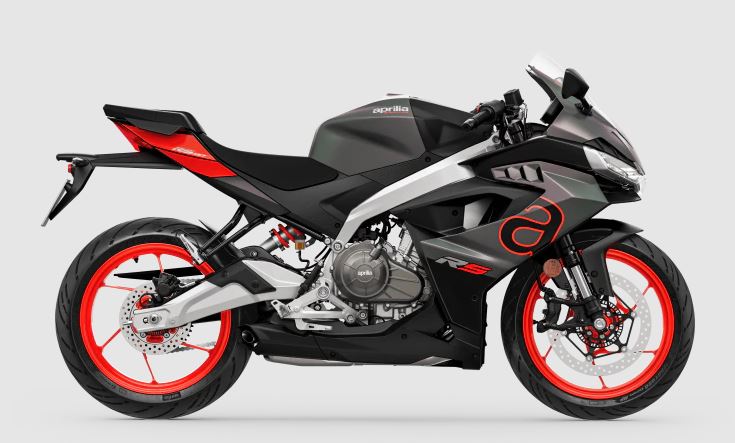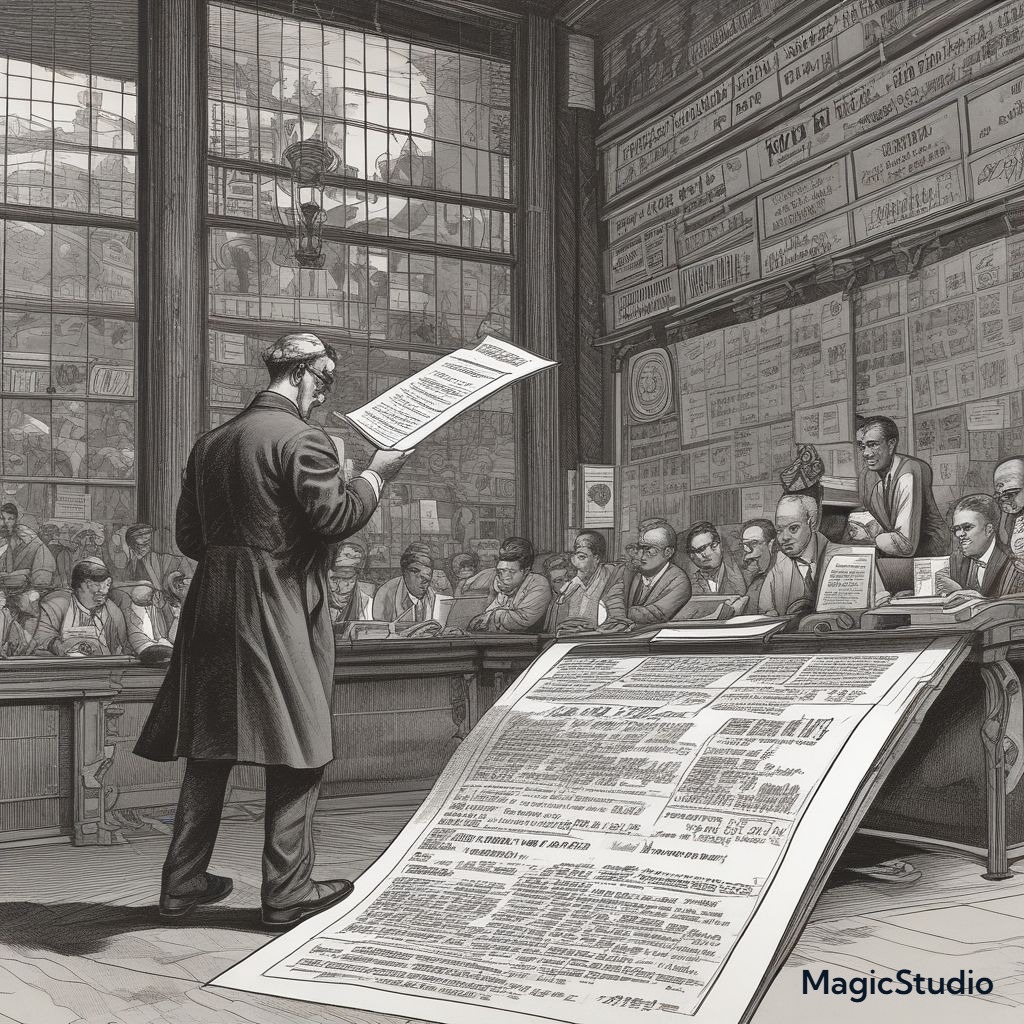In a recent judgement, the Madras High Court has upheld the controller’s decision of rejection of a patent application for an invention aimed at integrating human intelligence with artificial intelligence (AI). The applicant, Caleb Suresh Motupalli, had filed a patent application for a system designed to enhance human capabilities by merging human and AI functionalities.
Background of the Invention:
The invention, titled “Necktie Persona-Extender/Environment-Integrator and Method for Super-Augmenting a Persona to Manifest a Pan-Environment Super-Cyborg,” proposed a method to augment human abilities through the integration of AI. The applicant argued that this system would function alongside the user, enhancing both cognitive and physical abilities.
Patent Office Examination:
After examination, the Indian Patent Office issued a First Examination Report (FER) raising objections regarding the applicability, novelty, and compliance of the claimed invention with the provisions of the Patents Act 1970. The applicant made certain amendments to the patent claims and filed for reconsideration. Despite these amendments, the Controller of Patents maintained the objections and refused the application for Patent.
Court’s Decision:
The Madras High Court, presided over by Justice Senthil Kumar Ramamoorthy, dismissed the appeal of restoration of the patent application, stating that there are no sufficient grounds to interfere with the Controller’s decision. The court concluded that the invention lacked sufficient technical detail, clarity, inventive step, and failed to demonstrate patentable subject matter, rendering it non-patentable under the statutory requirements.
Implications:
This decision of the Madras High Court underscores the importance of providing clear and detailed technical features of invention in patent applications, especially in emerging fields like AI integration. It also highlights the necessity for inventions to demonstrate a clear inventive step and technical clarity to meet the patentability criteria under the Patents Act 1970.
Oral Biopsy Device technology Granted a Patent in USPTO
An automated oral biopsy device which is invented by a professor of Siksha ‘O’ Anusandhan (SOA) Deemed to be University in Bhubaneswar has been granted a Patent by United States patent office.
This device is pen-like shape and user-friendly, it simplifies the biopsy process, eliminating the need for extensive instrumentation and incorporating features like tele-screening and fiber-optic lighting.
This device enhance the accuracy and efficiency of oral disease diagnoses, particularly oral cancer, by enabling early detection and treatment without compromising expert opinion. Professor Mohanty had previously secured two Indian patents for the same product in 2023 and 2024, and a design patent in 2019. She filed for the U.S. patent in 2019, which was granted recently.
The research was funded by the Department of Science and Technology for prototype development, with support from Startup Odisha for need-based assistance. This innovation has garnered recognition, including the Global Outreach Dental Innovation Award in 2021, and was showcased at the Global Bio India 2024 in New Delhi.
This useful invention will help the patients immensely with early diagnosis and treatment of oral diseases without compromising on the expert opinion and reducing the burden of oral diseases, specially oral cancer.
JinkoSolar has initiated a legal action against Waaree Energies for patented technology
JinkoSolar has filed an infringement against Waaree Energies and its U.S. based subsidiary, Waaree Solar Americas, alleging infringement of its n-type tunnel oxide passivated contact (TOPCon) patent number, US11,824,136B2 granted in 2023. It is filed in the U.S. District Court for the Southern District of Texas on February 7, 2025.
The above said patent is granted to JinkoSolar in 2023, pertains to solar cells, their manufacturing methods, and photovoltaic modules. JinkoSolar has also patented this technology in key global markets, including China, Japan, Australia, and the European Union.
Now a days, this legal action is part of a broader trend in the solar industry, where major manufacturers are actively defending their intellectual property rights related to advanced technologies like TOPCon. For example, Trina Solar has recently filed a lawsuit against Canadian Solar over alleged patent infringements concerning TOPCon cell technologies.
Waaree Energies, is India’s largest solar PV module manufacturer. It is the flagship company of the Waaree Group, founded in 1989. It operates four PV manufacturing facilities in Gujarat, India, with a combined capacity of almost 12 GW. In December 2024, Waaree Solar Americas began producing solar modules at its new 1.6 GW plant in Brookshire, Texas
The outcome of this lawsuit could have significant implications for the solar industry, particularly concerning the protection and commercialization of IP rights related to advanced photovoltaic technologies.
Vivo filed a patent for smartphone with rear camera grip technology
Vivo (smartphone company) has filed a patent in CHINA Patent office for a smartphone with a unique camera design. This innovative design introduces a dedicated grip area on the back of the device, this will allow the users to hold the phone more securely and steadily while capturing images or videos.
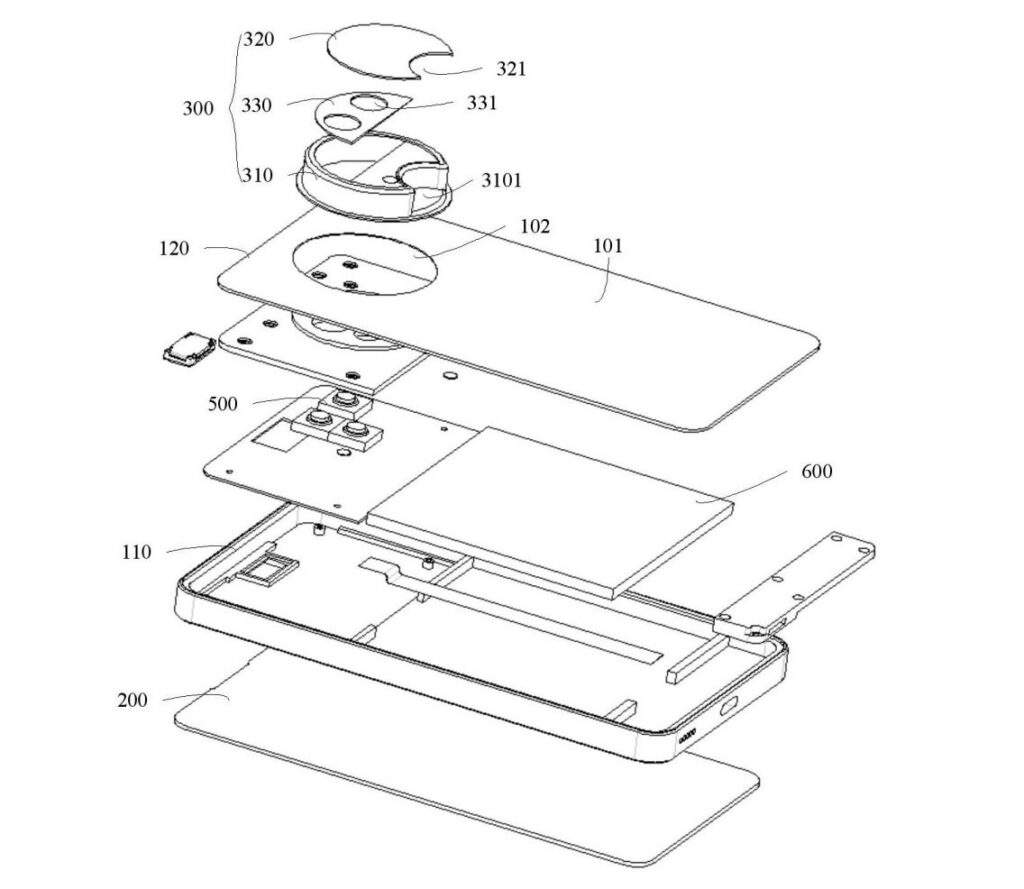
The Vivo patent images shows that the camera module is placed in center of smartphone. The camera bump is with high elevation, much higher than cameras on smartphones in general. The grip is provided in the form of the small cut-out on the bottom-half of the camera module. It looks like a sort of grip to hole the phone properly.
Key Features of the Patent:
Ergonomic Design: The rear camera grip is contoured to fit the user’s hand. It provides a comfortable and secure hold as shown in image.
Improved Stability: By offering a stable grip, the design aims to reduce camera shake. It results in clearer and sharper photos, which will increase stability of the camera.
Enhanced Control: The grip may include additional controls or buttons, allowing users to adjust camera settings more conveniently and user friendly.
This patent application reflects Vivo’s efforts to enhancing the smartphone photography experience by integrating ergonomic design elements as per user needs. As this is a patent and not yet launched as a commercial product, it shows Vivo’s innovative approach to smartphone design to make it more user friendly.
Patent granted for a herbal medicine to manage diabetes
Dr. Bharti Goyal, a research scholar at the Government College of Education (GCE) in Chandigarh, has received a patent for her innovative herbal formulation aimed at managing diabetes and its related complications. Dr. Goyal developed the formulation in collaboration with Professor Sapna Nanda, utilizing natural traditional herbs as a promising alternative to synthetic diabetic medications, which often have side effects.
The patent, titled “An oral synergistic formulation for the management of diabetes and related complications,” was granted in just two years, setting a record time for such patents. The National Biodiversity Authority (NBA) has recognized and approved the formulation, and the patent is valid for 20 years, starting from December 30, 2022, in accordance with the Patents Act, 1970.
This achievement emphasizes the potential of traditional herbal medicine in modern scientific research. The formulation provides a safer, effective, and sustainable option for managing diabetes, highlighting the importance of integrating traditional knowledge with contemporary scientific advancements.
“Ratan Tata” is a well-known trademark: Delhi High Court
The recent judgement issued by Delhi High Court on February 7 says that the name “Ratan Tata” is a well-known trademark which needs to be protected as per law.
Justice Mini Pushkarna made the observation while hearing a trademark suit filed by Tata Group and Sir Ratan Tata Trust against misusing the Tata brand, trademarks and the name of late Ratan Tata. [Sir Ratan Tata Trust Vs Dr. Rajat Srivastava].
On February 7, 2025, the court prohibited Rajat Srivastava, from hosting an event under the name “Ratan Tata Icon Award.” The court also restricted him from using the name and photograph of the late Ratan Tata for any purpose, including conferring any awards. The judgement is to protect the reputation and legacy of Ratan Tata, a highly respected business figure and philanthropist. The injunction likely stems from concerns over the misuse of his name and image in a manner that could potentially mislead or cause confusion about his endorsement of such events.
Generally, a well-known trademark is a mark that has achieved such a high degree of recognition among the public. It’s a mark that’s so famous and recognizable that its mere presence evokes the brand in the minds of consumers.
The lawsuit filed by Tata Group and the Sir Ratan Tata Trust emphasized the long-standing reputation and legacy of the Tata name, which has been a symbol of trust, quality, and ethical business practices in India for over 150 years. They argued that the unauthorized use of the Tata name and Ratan Tata’s image, particularly in the organization of events and awards, misled the public into thinking the Tata entities were endorsing them.
Rajat Srivastava and his organization, allegedly exploited the Tata brand’s goodwill by charging nomination fees for the event and promoting it across social media platforms. This created confusion among the public, making them believe the event was connected to or endorsed by the Tata Trusts. Despite the Tata Trusts issuing a takedown notice to stop such promotions, the defendants allegedly continued advertising the event, prompting the legal action.
The court ruled in favor of the Tata Group and the Sir Ratan Tata Trusts, granting them a permanent injunction against Rajat Srivastava and his organization. This means that the defendants are now permanently prohibited from using the Tata name, trademarks, or Ratan Tata’s image in any future events, promotions, or activities. However, the court directed the defendants to file an affidavit confirming their commitment to not engage in such activities going forward.
While the plaintiffs, Tata Group and the Tata Trusts, expressed satisfaction with the court’s ruling, they chose to waive any claims for damages or legal costs. This decision emphasizes that their main focus is on protecting the integrity of the Tata brand and preventing future misuse, rather than seeking any financial compensation.
UIET granted a patent for Multi Plant Transplanting technology
UIET Institute granted a patent for Multi Vegetable Transplanting. It will speed up the plant saplings by saving time, energy and money.
According to Prof. Sachdeva (Vice Chancellor), promoting research and research is their main priority. To promote innovation, entrepreneurship and self-employment, two incubation centers have also been established in UIET Institute. Research and innovation is the key solution to social problems including agriculture, business, science and technology.
This patent was applied in June 2023 by the team of Department of Mechanical Engineering. A team of 19 students from the Mechanical Department along with Dr. Sanjay Kajal, Dr. Sunil Nain, Dr. Anuradha, Dr. Upendra Dhull. The machine was also displayed at Mahatma Phule Agricultural University, Pune, Maharashtra for assessment and inspection purpose.
350 saplings can be planted in one go
In the agricultural sector, the work of planting saplings is done by hand, which takes more manpower and time. By using this machine a farmer sows in his field, he can adjust the distance from plant to plant and line to line in the machine as per his wish. This machine not only saves time and energy in planting trees but also saves money. The machine has technology of a transmission, Geneva and rotor mechanism, through which the distance can be set according to the need of the plant.
The space is provided for two trays, through which 350 plants can be planted at a time. This machine can transplant many plants like brinjal, tomato and chilli.
Mixed result for Nokia and Amazon in dispute over streaming technology
Nokia and Amazon had a mixed outcome at the Düsseldorf Regional Court as both companies were navigate legal disputes related to streaming technology.
Amazon and Nokia are involved in a legal dispute concerning multiple streaming technology patents, with the Regional Court Düsseldorf playing a key role in the rulings.
Patent EP 2 271 048 B1 (EP 048) filed by Amazon, explains a method for provisioning multimedia services that display additional information (like actor details) alongside streaming video. The court ruled that Amazon infringed this patent (case ID: 4c O 49/23). The court ordered Amazon to stop using the infringing technology in their video software and devices. Additionally, Amazon must provide information regarding the use of the technology since January 1, 2023, and compensate Nokia for damages incurred due to the infringement. To enforce this ruling, Nokia has to provide security in the amount of €646.75 million.
Patent EP 2 130 150 B1 (EP 150) filed by Nokia, discloses a systems and methods for arranging media files, such as recommending additional content to users. The court dismissed the infringement claim for this patent (case ID 4c O 50/23), meaning Amazon was not found to infringe on this specific technology.
The case was overseen by a panel of three judges namely Sabine Wimmers, Stephan Janich, and presiding judge Sabine Klepsch.
Aprilia Tuono 457: Patented And ready to Launch In INDIA
Aprilia has filed a patent and is set to expand its motorcycle portfolio in India with the new Tuono 457. The Aprilia Tuono 457 makes design compact, essential lines that capture the sporting soul.
Some of the advance features are triple full-LED headlight cluster, small spoiler, with its advanced aerodynamics. Aprilia Tuono 457 will be manufactured locally to achieve a competitive price in market. The design of the bike is sports-oriented with lower seat, tapered to the side to deliver a comfortable riding experience.
Three Riding Modes are provided to optimize power output, torque and traction control across three levels, even while riding. To make easier and more intuitive, riding modes are given in handlebar commands and choice will be displayed on the ultra-modern 5” TFT color dashboard.
The Aprilia Tuono 457 comes in two variants, which represents its own unique character. Piranha Red is a combination of black and red that emphasises the bike’s aggressive nature, while the Puma Grey is combination of sober grey and white tones.
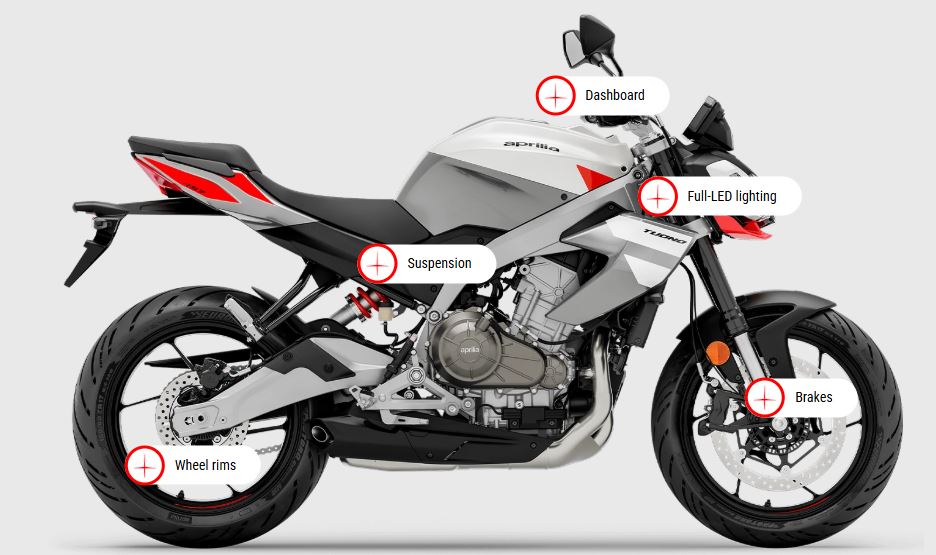
Apple’s New Patent: iPhone can become All in one Universal Remote control
Apple has granted a patent titled “Controlling Electronic Devices Based on Wireless Ranging”. Apple has developed a technology that can allow users to control a wide range of devices—such as smart TVs, smart home appliances, vehicles key remote, and gaming consoles with wireless technology. This is achieved using an iPhone or iPad.
How the Wireless Controlling System Works
In its new patent, Apple explains that in this wireless controlling system, the device (iPhone) will detect when a user wants to control a device and determine which one is being targeted. This could involve factors such as proximity, orientation, and possibly even gesture-based commands. If a user points their iPhone toward a TV, the phone will recognize that action and display relevant controls without requiring the user to unlock the device or navigate through menus. The same logic could apply to smart thermostats, lights, or even gaming consoles, making device control as intuitive as a simple wave of the hand. By facilitating control of the object from a distance, this technique may eliminate the need for a user to be in physical contact with a user interface on or associated with the device. The patent also suggest that there is no need of passcode or biometric identifier to unlock the device.
Apple keeps its employees busy make new ideas and possible innovations across its ecosystem to make devices more user friendly. In fact, it has not only brainstorms ideas but also rushes to get the patent as soon as something comes to the table. That’s the reason that, Apple has filed 95,500 patents globally till December 2024, out of which 78,104 patents has been granted and active.


